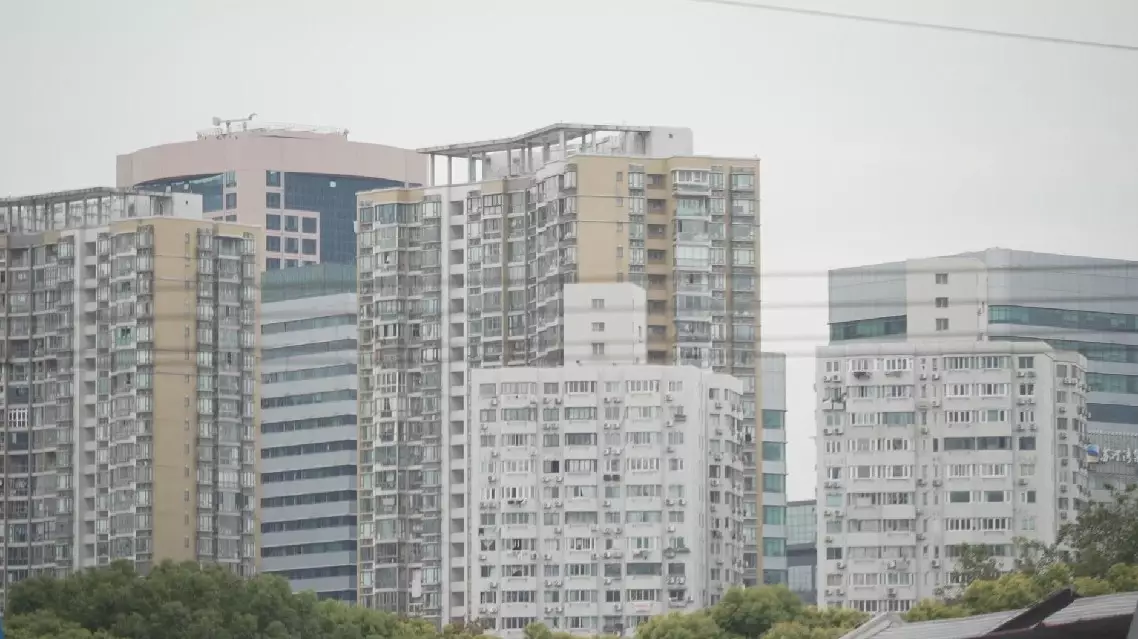China saw considerable growth in second-hand home transactions in major cities last month, as the latest wave of pro-housing policies further boosted home-buyer sentiment.
Starting October 1, Shanghai implemented seven new policies aimed at further strengthening the local real estate market and better addressing residents' housing needs. These measures include easing restrictions for non-local buyers, lowering down payment requirements for both first-time and second-home purchases, and expanding value-added tax (VAT) exemptions for property transactions.
On November 18, the city took another step by eliminating the distinction between 'ordinary' and 'non-ordinary' housing, further lowering taxes and transaction fees.
"With new policies being introduced, the house we were considering swapping for our old one now costs 300,000 yuan less than before. So. we're hoping to take advantage of this policy and secure the deal," said a resident surnamed Ren.
According to Shanghai's Real Estate Transaction Center, a total of 27,050 second-hand homes were sold in November, marking the highest monthly sales of the year.
Suzhou, located in neighboring Jiangsu province, has also seen a sharp increase in home visits and contract signings, driven by policy incentives such as property deed tax subsidies.
At the sales office of a new property development, crowds of potential buyers gathered to inquire about the available properties.
"Over the past two months, we've seen an average of 20 to 25 group visits daily, with weekends seeing around 40 to 50 groups -- roughly a twofold increase compared to last year. Our monthly sales have reached 50 to 60 units, nearly tripling from the same period last year," said Ge Zhengdong, a sales manager for the development.
November's figures show Suzhou's new home deals signed online exceeding 8,400 units, a 15 percent increase compared to last year, while second-hand home transactions topped 9,000, representing a 23 percent month-on-month growth. Both marked the highest monthly transaction volumes of the year.
The city has also introduced 'one-stop' services for home selection, transaction completion, and paperwork processing. At the service point in Suzhou Industrial Park, an integrated smart service machine enables home buyers to manage all aspects of the transaction -- from property mortgage applications and ownership transfer registration to tax payments and certificate printing --significantly streamlining the home buying process.
"The market, in general, is showing a clear upward trend. As consumer confidence improves, sales will surely pick up," said Tang Wei, vice president of the Suzhou Real Estate Brokers Association.
In South China's Guangdong Province, favorable measures, such as VAT exemptions, have also contributed to a rise in second-hand home sales.
"We've seen a noticeable increase in transactions. Previously, we might have closed just one deal every one to two months, but we could sign two deals within a month," said a real estate agent in Guangzhou City.
According to the Guangzhou Association of Real Estate Agents, over 11,400 second-hand homes were signed online between October 26 and November 25, marking a 10.01 percent month-on-month increase.
The second-hand housing market in Shenzhen is also experiencing robust demand and supply growth.
"We've sold more than 100 units in the surrounding area, with most buyers paying in one lump sum," said Liu Yi, a property consultant in Shenzhen.
Industry data shows that from November 1 to 24, Shenzhen recorded 5,477 second-hand homes signed online, with daily transactions surging by 118.5 percent year-on-year and 15.6 percent month-on-month.

China's second-hand home transactions surge in November, driven by policy support









